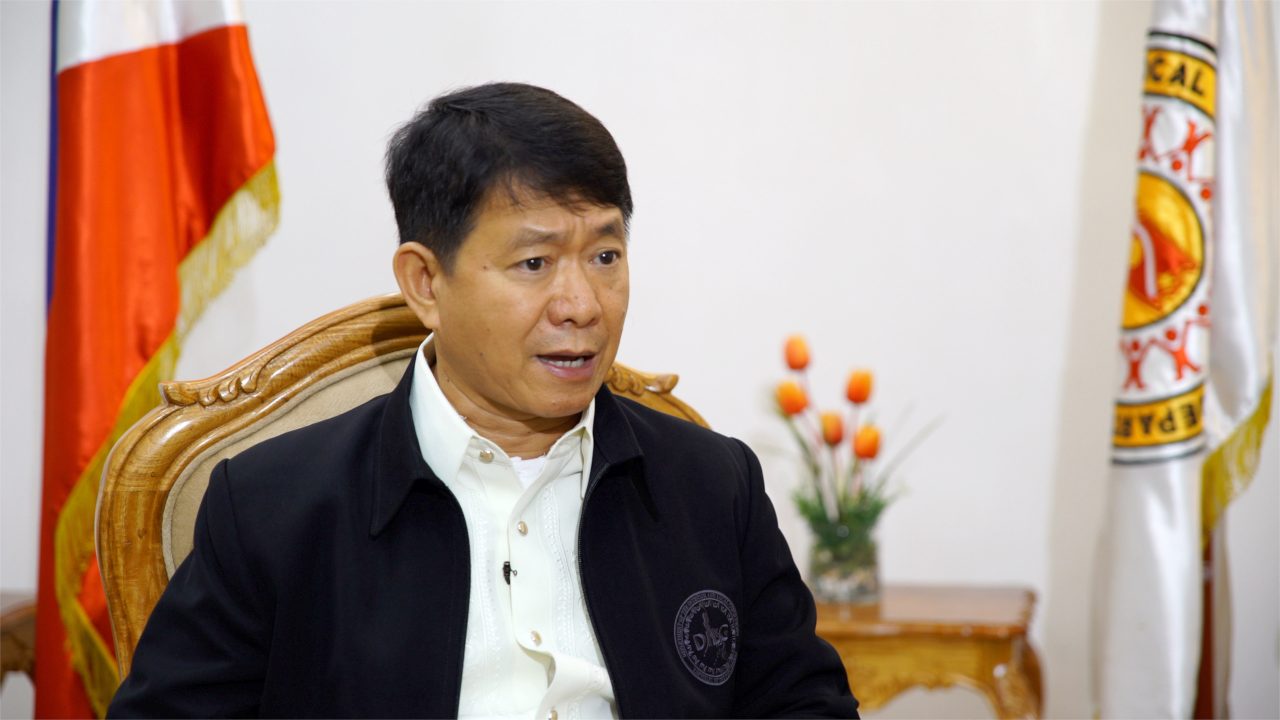SUMMARY
This is AI generated summarization, which may have errors. For context, always refer to the full article.

MANILA, Philippines – If the Philippines had a tougher anti-terror law, martial law would not even be needed in Mindanao, said Department of the Interior and Local Government (DILG) Secretary Eduardo Año.
“Martial law should be the last resort, but…kaya nga (that’s why) we are asking for the amendment of the Human Security Act,” Año said in a Rappler Talk interview on Thursday, November 15.
“Kung meron tayong malakas na Human Security Act, ‘di mo na kailangan ng martial law eh. ‘Yung batas lang ang kailangan nating pairalin (If we had a stronger Human Security Act, we would no longer need martial law. We just need to enforce the law),”he added.
Año, a former military chief and implementer of military rule, was asked why martial law, despite being a measure of last resort, is still necessary in Mindanao.
The martial law in the southern island region is set to lapse on December 31. Año and the Philippine National Police are so far inclined to recommend another extension.
What amendment? Both chambers of Congress are currently amending the Human Security Act, which was signed into law back in 2007.
Año is arguing that the law has so far “favored” suspects more than law enforcers, making it difficult for them to file cases. Examples he cited were the maximum 3 days of detention for terror suspects, and the required payment to suspects of P500,000 per day of detention if they are acquitted.
“Walang gumagamit ng Human Security Act (Nobody uses the Human Security Act),” Año said.
Rather than be restricted by the supposedly outdated law, cops and soldiers could easily seize evidence and stop suspicious-looking personalities under martial law.
Talks of amendments at the House of Representatives emerged back in June. But leftist lawmakers expressed alarm over provisions which they said could “normalize” martial law. For instance, they said the definition of terrorism might be expanded to include “simple” acts of protest like workers’ strikes.
Changes have moved quickly at the Senate, as it is likely to pass amendments on surveillance and detention guidelines. – Rappler.com
Add a comment
How does this make you feel?
There are no comments yet. Add your comment to start the conversation.